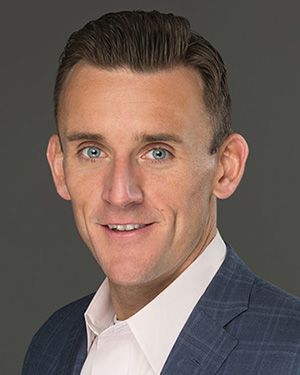- Sustainability
- DE&I
- Pandemic
- Finance
- Legal
- Technology
- Regulatory
- Global
- Pricing
- Strategy
- R&D/Clinical Trials
- Opinion
- Executive Roundtable
- Sales & Marketing
- Executive Profiles
- Leadership
- Market Access
- Patient Engagement
- Supply Chain
- Industry Trends
Eager to Educate
Mike Hennessy Jr.
President and CEO
MJH Life Sciences

Nothing says “end of summer” like high school football practice, apple cider, and Halloween decorations. Everyone packs up their sand chairs and boogie boards and heads back to the classroom, or workplace, whichever is most applicable. Here at MJH Life Sciences®, where education and events go hand-in-hand, our studios have been polished up all summer to bring a series of medical education programs for our physician audience. Titles such as NSCLC Insights, CKD Stakeholder Summit, and Medical Crossfire®: Expert Insights in Anti-VEGF Dosing for nAMD and DME, are all intended to help physicians improve their patients’ outcomes.
On the Industry Sciences side, MJH strives to contribute to these efforts in a different way. We inform and educate those professionals who research new compounds, investigate potential therapies in clinical trials, manufacture and distribute these drugs, and who also inform patients and healthcare professionals (HCPs) on the most appropriate ways to take advantage of innovative drugs.
Here, in addition to events, Industry Sciences offers webcasts, digitally-enhanced “books” and magazines, videos, podcasts, and other forms of educational material for our audiences. Some current and upcoming topics on Pharmaceutical Executive® include:
The American Medical Association reports that overall health spending was 18.3% of GDP in 2021 compared with 19.7% of GDP in 2020. That figure was down a bit, but still represents a hefty piece of the pie. Of this, 31.1% went to hospital care, 14.9% to physician services, and 8.9% to prescription drugs (see bit.ly/3E7vQUZ).
Of course with any large enterprise, controversies abound in a complex ecosystem. Healthcare payers accused of not paying their fair share of services for the patients they insure; hospitals marking up drug costs 500%; and pharmacy benefit managers and wholesalers who portion drug manufacturer rebates for their coffers are examples The satellites that orbit the core healthcare delivery in the US are the hurdles that HCPs and manufacturers must jump to ensure that patients can become healthier.
Please take advantage of our many resources as you head back to work and educate yourself on all the latest issues impacting your decisions.

